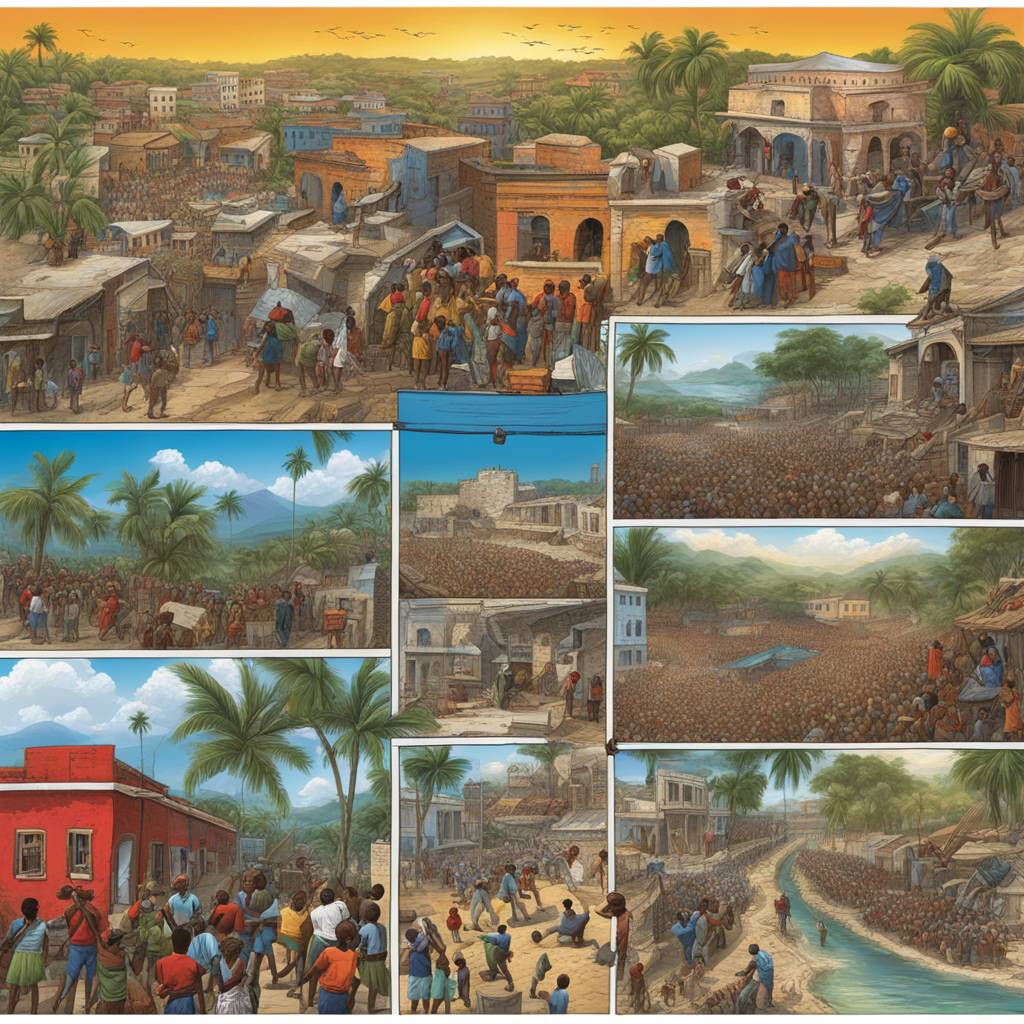Haiti is a country in the Caribbean that has been plagued by political instability and social unrest for decades. The country’s history is marked by a series of dictatorships, coups, and periods of political instability, which have hindered its development and contributed to its current state of crisis. Since gaining independence from France in 1804, Haiti has struggled to establish a stable political system and overcome the legacy of colonialism and slavery.
One of the key factors contributing to Haiti’s current crisis is the widespread corruption and economic mismanagement that have plagued the country for years. The government has been accused of embezzling funds, misappropriating foreign aid, and engaging in corrupt practices that have stifled economic growth and led to widespread poverty and inequality. This has further exacerbated social tensions and contributed to the current wave of protests and unrest.
In recent years, Haiti has also been hit by a series of natural disasters, including hurricanes, earthquakes, and droughts, which have further strained its already fragile infrastructure and economy. The devastating impact of these disasters has made it even more difficult for the government to meet the needs of its population and address the underlying causes of the country’s crisis. In addition, Haiti’s vulnerability to climate change has raised concerns about its ability to adapt to future environmental challenges.
The current crisis in Haiti has also been fueled by deep-seated social issues, including widespread poverty, inequality, and lack of access to basic services such as healthcare, education, and clean water. The majority of the population lives in poverty, with high levels of unemployment, inadequate housing, and limited access to essential services. This has created a sense of frustration and despair among many Haitians, leading to widespread protests and demands for political change.
The international community has also played a role in exacerbating Haiti’s crisis, with foreign powers often intervening in the country’s affairs for their own interests. The United States, in particular, has a long history of interference in Haiti, including supporting dictators and destabilizing democratically elected governments. This has contributed to the country’s political instability and undermined its ability to govern itself effectively.
Moving forward, Haiti faces significant challenges in addressing its current crisis and rebuilding its economy and infrastructure. The government will need to address the underlying causes of the country’s instability, including corruption, economic mismanagement, and social inequality, in order to restore stability and promote sustainable development. The international community will also need to support Haiti in its efforts to rebuild and recover from its current crisis, including providing humanitarian aid, debt relief, and technical assistance to help the country build a more sustainable and prosperous future.













